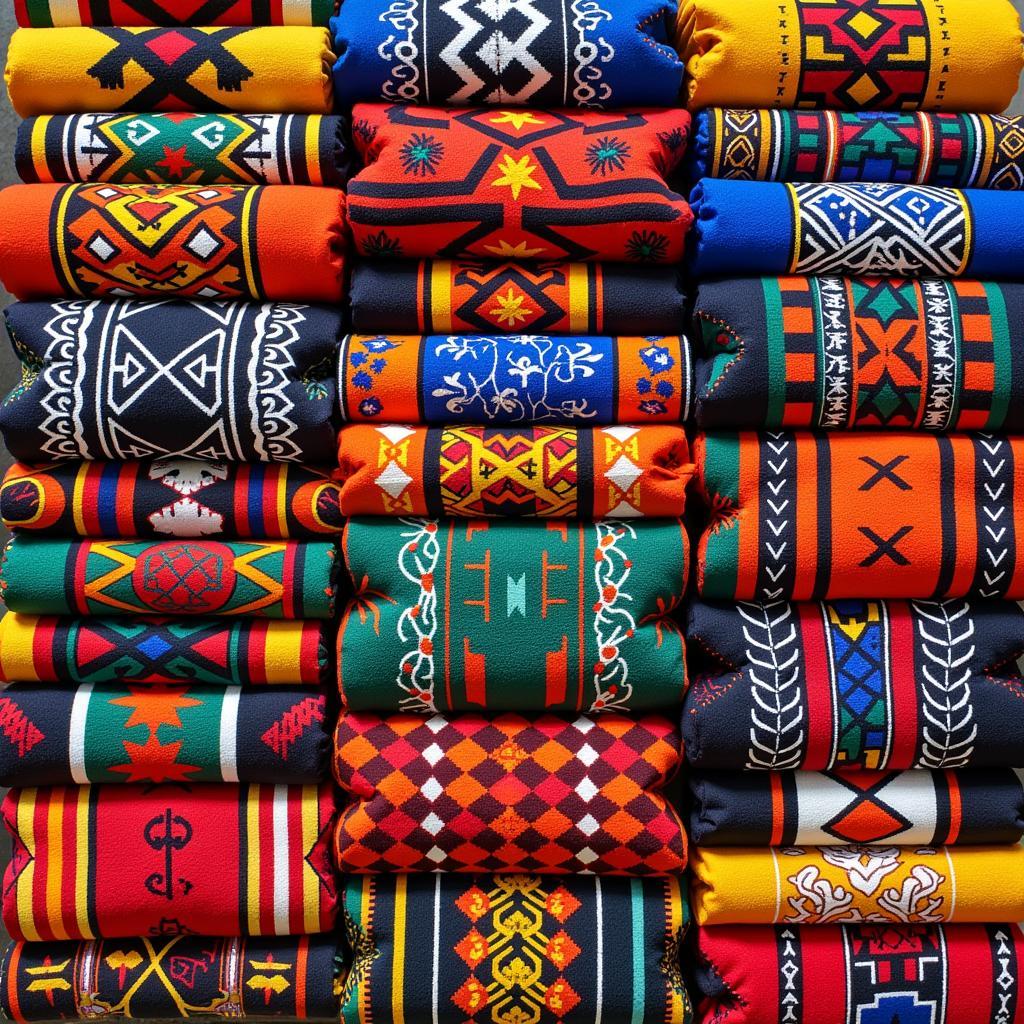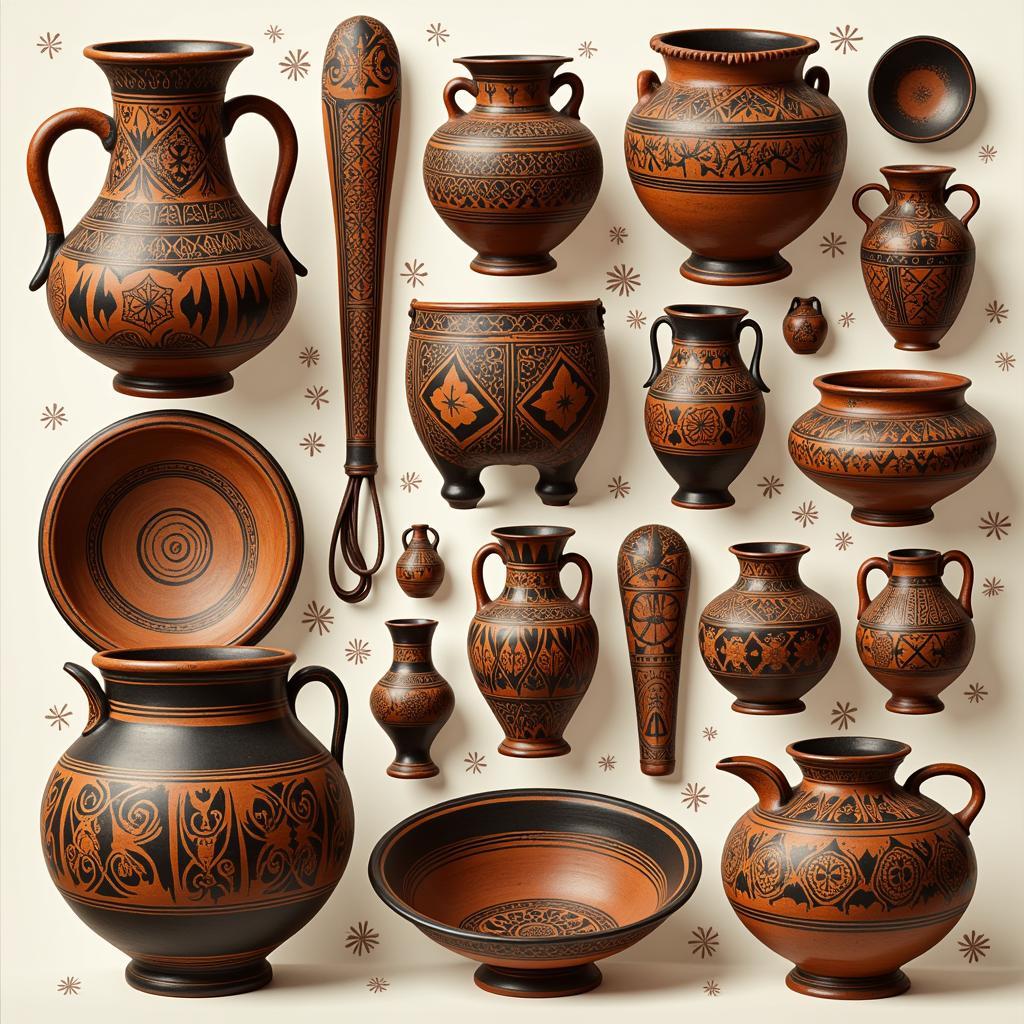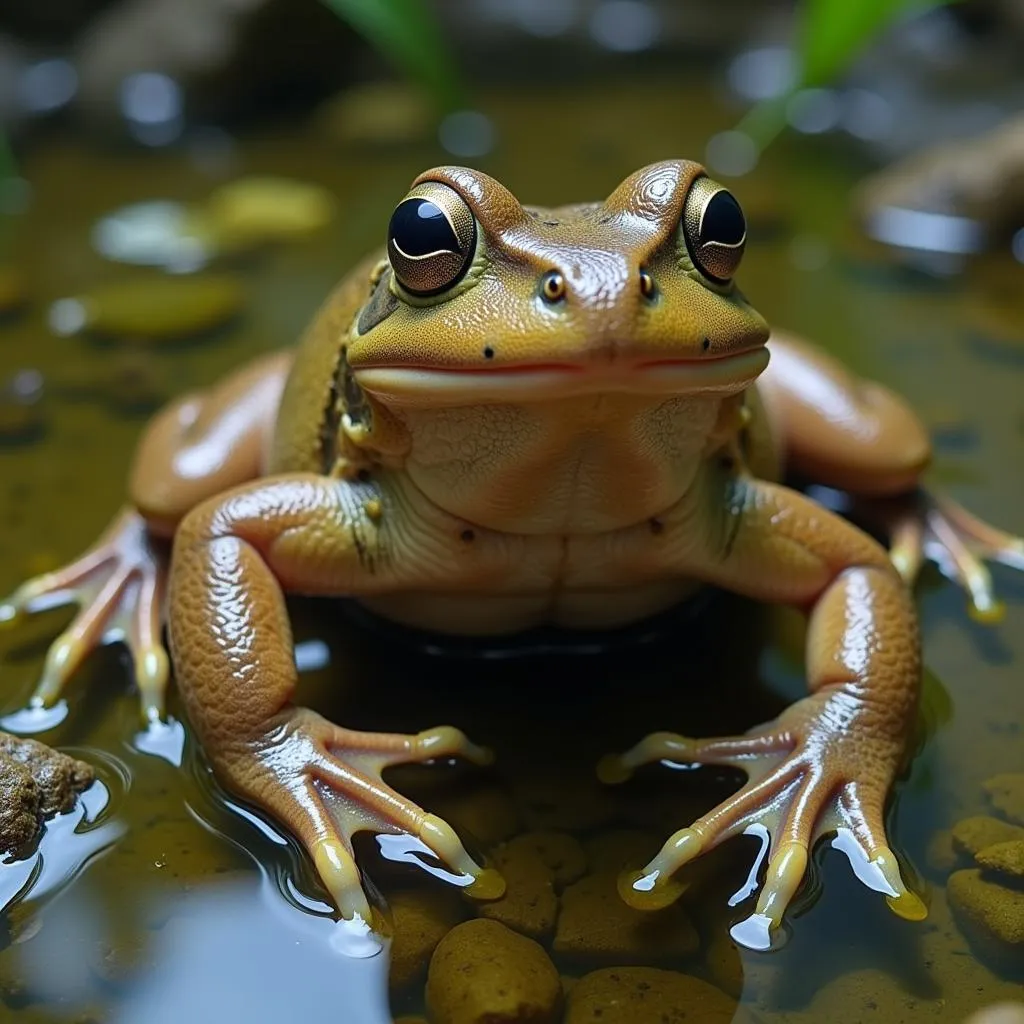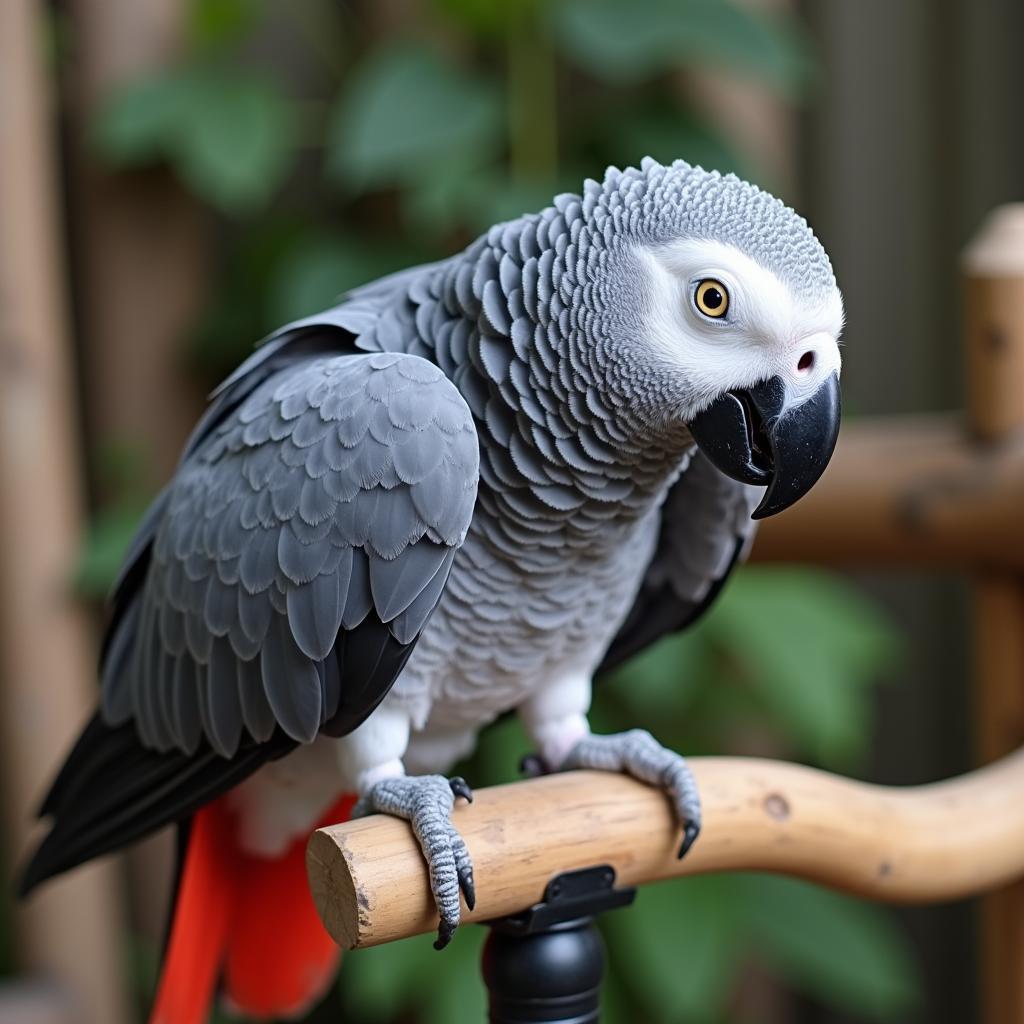African Art Images and Facts: A Journey Through Visual Storytelling
African art images are far more than just aesthetically pleasing visuals; they’re a vibrant tapestry woven with rich history, cultural beliefs, and societal values. This exploration delves into the captivating world of African art, uncovering fascinating facts and showcasing its diverse forms.
Unveiling the Depth and Diversity of African Art
From the intricate carvings of West Africa to the colorful beadwork of the Maasai, African art is anything but monolithic. Each region boasts unique styles and techniques, reflecting their specific cultural identities and historical narratives. For instance, the Yoruba people of Nigeria are renowned for their exquisite bronze sculptures, often depicting deities and ancestral figures. In contrast, the Makonde people of East Africa are celebrated for their expressive wooden carvings, frequently exploring themes of transformation and the human condition.
 Vibrant African Textile Patterns
Vibrant African Textile Patterns
More Than Meets the Eye: Symbolism and Meaning
African art is deeply rooted in symbolism, with every element carrying profound meaning. Colors hold immense significance, with green often representing fertility and growth, while red can symbolize power and vitality. Animals, too, play a crucial role in African art, with the lion often embodying strength and leadership, while the wise elephant symbolizes wisdom and longevity.
 Symbolic African Pottery Designs
Symbolic African Pottery Designs
For example, consider the ubiquitous African masks. Far from being mere decorative objects, these masks serve vital roles in rituals, ceremonies, and social commentary. They can represent ancestors, deities, or even abstract concepts, connecting the physical and spiritual realms. Similarly, intricate textile designs, like those found in Kente cloth from Ghana, often communicate social status, lineage, or even proverbs.
African Art in the Modern World: A Global Influence
Today, African art continues to evolve, influencing and inspiring artists and art enthusiasts worldwide. Contemporary African artists are pushing boundaries, experimenting with new mediums and engaging with global issues while staying true to their cultural heritage. From the vibrant paintings of Chéri Samba to the thought-provoking installations of El Anatsui, African art continues to captivate the world with its beauty, depth, and powerful narratives.
Frequently Asked Questions about African Art
1. What are the main materials used in African art?
African art utilizes a diverse range of materials, including wood, bronze, clay, textiles, beads, and even recycled objects. The choice of materials often depends on the region, cultural practices, and the intended purpose of the artwork.
2. Is there a single style that defines African art?
No, African art encompasses a vast array of styles and artistic expressions, varying significantly across different regions and ethnic groups. Each style reflects the unique cultural traditions, beliefs, and artistic sensibilities of its creators.
3. Where can I see and learn more about African art?
Many museums worldwide house impressive collections of African art. Additionally, online platforms and art galleries dedicated to African art offer virtual tours, artist interviews, and insightful information.
4. How has colonialism impacted African art?
Colonialism has had a complex and multifaceted impact on African art. While it led to the exploitation and appropriation of cultural artifacts, it also fostered cross-cultural exchanges and influenced the development of new artistic styles.
5. What is the role of women in traditional African art?
Women have always played a vital role in African art, often specializing in specific crafts like pottery, weaving, and beadwork. Their artistry is deeply intertwined with cultural traditions and often carries significant social and spiritual meaning.
Need Help Discovering More About Africa?
If you need assistance in learning more about African art, culture, or travel, please don’t hesitate to contact us. You can reach us by phone at +255768904061, email us at kaka.mag@gmail.com, or visit our office in Mbarali DC Mawindi, Kangaga, Tanzania. Our dedicated customer service team is available 24/7 to help you explore the wonders of Africa.

